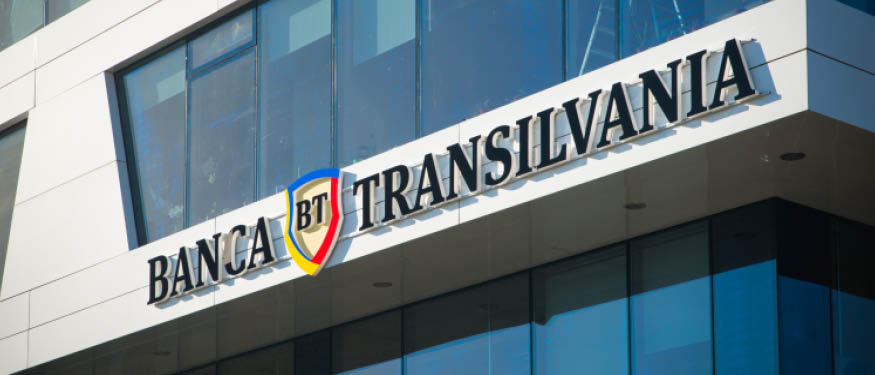After many years of liberalization and globalization, recent years have shown a reversal of the European Union’s approach concerning foreign direct investment from third countries. As in much of the world, the EU has taken a more restrictive view than in the past, and this view is reflected on the legislative level with the FDI Screening Regulation.
The Legal Framework of EU Foreign Direct Investment Screening Regulation
In March 2019, the European legislator introduced the so-called “FDI Screening Regulation” (EU 2019/452 or FDI-R) establishing a European framework for screening foreign direct investments into the bloc in an effort to balance the EU’s openness to foreign investment with the need for caution about the ultimate sources and purposes of that investment.
The applicability of the FDI-R and the requirements stipulated therein will not alter the existing discretion of each Member State to put in place FDI screening mechanisms on a national level. However, where a Member State has implemented national control or screening mechanisms, they must ensure that those mechanisms are compliant with the principles set forth in the FDI-R.
In the wake of the COVID-19 pandemic, the European Commission has also published guidelines warning the Member States of an increased risk of foreign entities attempting to acquire stakes in strategic industries such as healthcare or R&D. In its communications, the European Commission has urged the Member States to be vigilant and to make full use of existing control mechanisms to avoid the loss of critical assets and technology and to introduce or implement more rigorous investment control mechanisms.
Implementation in Austria
Under Austria’s previous FDI control regime, foreign investors were obliged to submit an application for approval only before acquiring an interest in an Austrian company operating in an area of public safety and order.
The material scope of the approval requirement under the Austrian control regime was to some extent unclear and broadly worded and therefore allowed the Austrian authorities a considerable degree of flexibility in its application. For a foreign investor, it was not always clear in advance whether the envisaged acquisition was subject to the approval requirement or not, burdening the approval procedure with legal uncertainty and a lack of transparency.
Moreover, the approval requirement only applied if the acquisition of the stake in the Austrian company was made directly by an investor located outside the EU, the European Economic Area (EEA), or Switzerland. In practice, third-country investors were therefore able to bypass the approval requirement relatively easily by acquiring equity stakes indirectly via EU-based subsidiaries.
On July 25, 2020, the Austrian legislator enacted a revised FDI control regime by implementing the Austrian Investment Control Act (InvCoA), significantly expanding the previous “lean” Austrian FDI control regime both in terms of scope and procedure.
Under the new Austrian FDI control regime, foreign investments in Austrian companies are subject to approval if: (a) the target company is active in a sensitive or system-relevant sector; and (b) the shares to be acquired in the target company reach or exceed certain voting rights thresholds or otherwise provide a controlling influence. In context of the sensitive or system-relevant sector requirement the InvCoA encompasses “particularly sensitive sectors” such as the operation of critical energy and digital infrastructure (in particular 5G infrastructure) and – largely because of the COVID-19 outbreak – research and development in the areas of pharmaceuticals, vaccines, and medical devices, as well as other sectors in which a threat to security or public order, including crisis and general interest services, may arise.
The InvCoA’s applicability thus considerably extends the material scope of the previous Austrian FDI control regime and now explicitly includes sectors which were previously practically exempt from approval requirements.
Furthermore, the possibilities of circumvention apparent in the previous Austrian FDI control regime through indirect acquisition schemes, in particular through execution via subsidiaries established in the EU, received strong criticism. In response, the Austrian legislator has extended the approval requirement to indirect acquisition schemes. As a result, acquisitions by a special purpose vehicle based in the EU/EEA and controlled by a foreign investor are now subject to approval.
Outlook and Implementation in Practice
As mentioned, the new Austrian FDI control regime follows political trends requiring stricter scrutiny of investments from third countries. With the implementation of the new FDI control regime, the Austrian legislator is attempting to ensure in particular that foreign investors are prevented from having access to critical technologies and sensitive information without approval.
Due to the extension of the Austrian FDI control regime to indirect acquisitions as well as the extensive expansion of sectors that are subject to approval, a considerable influx of new approval procedures is to be expected.
The increase of approval proceedings will only be amplified by the fact that the relevant sensitive sectors are very broadly defined and therefore offer considerable margin for interpretation. As a result, the competent authority is enabled to comprehensively apply the approval requirement of the InvCoA.
It can therefore be assumed that in the future there will only be a limited number of international transactions for which the question of the InvCoA’s approval requirement does not arise or for which it can be completely ruled out.
Implementation in Slovenia
Unlike Austria, Slovenia did not have FDI screening mechanisms prior to the FDI-R. By its May 29, 2020 enactment and implementation of the intervention measures act (Zakon o interventnih ukrepih za omilitev in odpravo posledic epidemije COVID-19), it directly addressed the European Commission´s concerns. Slovenia now requires a foreign investor (regardless of which country it come from) to notify the Slovenian authorities regarding any acquisition of at least a 10% share interest in the capital or voting rights (including both direct and indirect acquisitions). However, only investments which pose a threat to Slovenian security or public order are subject to the notification obligation. The sectors covered by the notification requirement are fully aligned with the FDI-R. Furthermore, any foreign investor or its subsidiary is subject to the notification obligation if they acquire the right to dispose of real estate or land crucial to critical infrastructure or in close proximity to such infrastructure.
From a procedural point of view, the Slovenian authorities are obliged to issue a decision within two months after receiving a notification, stating whether they approve, prohibit, or revoke the FDI or impose conditions on it. However, Slovenia’s act does not contain a standstill obligation and also does not provide for a clarification remedy, declaring whether or not the proposed investment is subject to the notification requirement.
By implementing the act, the Slovenian legislator has reacted to the warnings of the European Commission and has established strict rules for FDI.
Comparison and Conclusion
The entry into force of the FDI-R allowed both Austria and Slovenia to considerably reinforce their respective foreign investment control by empowering them to scrutinize indirect as well as direct investments. In this context, it seems that the Slovenian legislator exceeded the terms imposed by European Union law by requiring notification of and providing for scrutiny of acquisitions by EU entities/persons (not ultimately owned by third country entities/persons), and by allowing retroactive investigations, both of which seem not to conform to EU legislation and the constitution of the Republic of Slovenia.
By Jasna Zwitter-Tehovnik, Partner, Kevin Luiki, Associate, and Ursa Brinovec, Erasmus Trainee, DLA Piper Weiss-Tessbach
This Article was originally published in Issue 7.12 of the CEE Legal Matters Magazine. If you would like to receive a hard copy of the magazine, you can subscribe here.

















